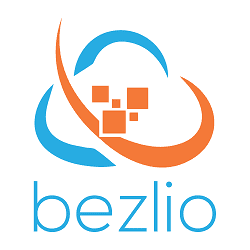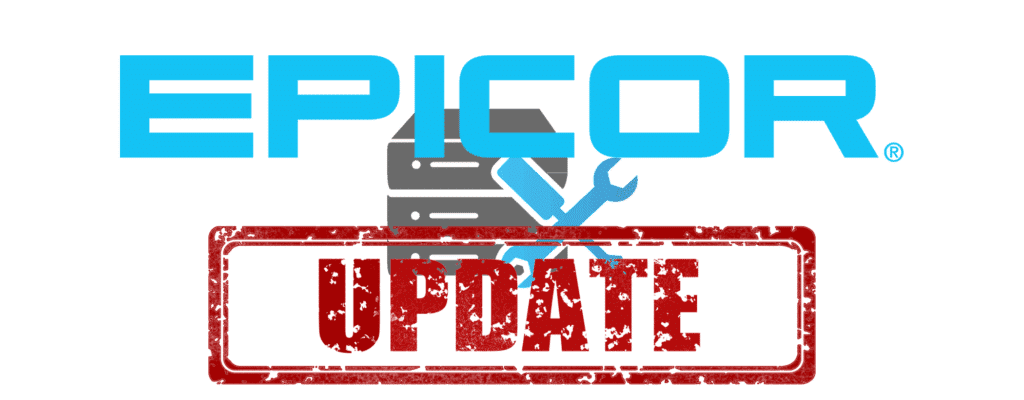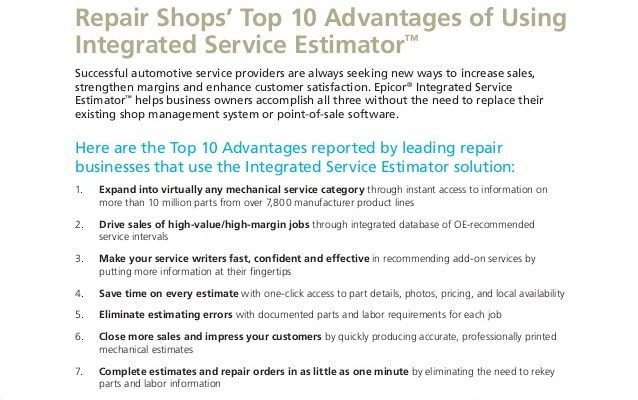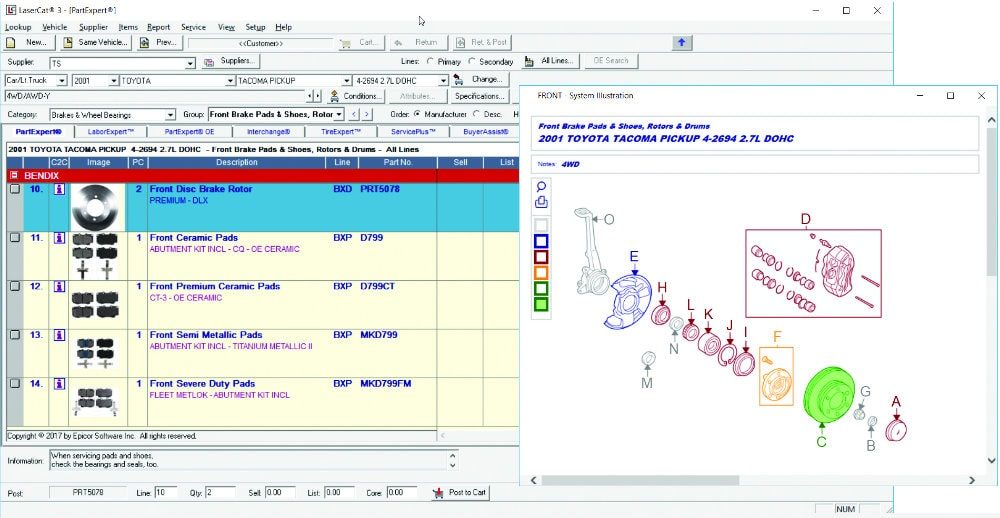If today’s small and mid-sized manufacturer is to sustain growth and thrive in today’s global marketplace, they must evolve from some of the practices they used in their early stages. Case in point: the use of Intuit® QuickBooks. In this post, we cover the limitations of QuickBooks software for manufacturers, how to know it’s time to move on, and the benefits of a GAAP-compliant, cloud-based ERP solution for manufacturing industries.
A huge number of small and mid-sized businesses (SMBs) adopted the use of QuickBooks to track the finances of their young businesses. However, many of these young businesses soon realize that to manage the business, the scope of business systems needs to go beyond finance. It needs to include the ability to plan, procure, produce, distribute, and sell, as well as to account. In addition, today’s business climate demands more complex transactions, requires more critical planning and tracking of revenues, greater visibility of customers, and involves more stringent accounting and regulatory standards.
The dynamics of today’s markets have changed the competitive landscape for businesses large and small alike. Competing in global and emerging markets, once the domain of large global multinationals, is now within the scope of virtually every commercial enterprise. Indeed, it’s difficult to imagine a manufacturer that doesn’t somehow interact with today’s global manufacturing supply chain.
Technology has broken traditional barriers and “flattened the world.” This flat, new world has sharp edges. Yes, opportunity is greater for all; but so, too, is competition. To compete successfully, companies must have the technical confidence to communicate, collaborate on, and record transactional activities on a scale heretofore unimagined.
Moreover, companies must accommodate an increasingly dispersed workforce, as well as complex, multi-tiered, nuanced supply networks that span continents and are subject to different regulations, taxes, currencies, and so on. While small and mid-sized businesses are empowered by these new market developments, they face greater challenges than their larger competitors because of capital and personnel constraints.
Historically, the transition from QuickBooks to a more robust solution was an agonizing decision for SMBs. The traditional path involved implementing costly, complex, user-challenging, on-premises software. Often these solutions required long and costly deployment cycles, new hardware purchases, and internal IT resources that simply weren’t readily available.
Today, that transition has been eased. The advent of cloud-based, on-demand solutions, often called software as a service (SaaS), has enabled SMBs to better meet the business requirements of the new marketplace. Now they can easily move beyond the simple financial functionality of QuickBooks to more effective and comprehensive solutions for the total business.
A decision to not embrace this new world, driven by both technical and business changes is for many companies a decision to not embrace their full competitive potential.
The Limitations of QuickBooks
QuickBooks has a number of limitations that can hamper SMBs looking to grow in today’s global marketplace, including:
- Scalability
- Point solution orientation
- Narrow visibility
- IT concerns and costs
- Limited functionality, difficult integration
- Access concerns
- Difficult adaptation to change
- Currency recording issues
- Latency
- Lack of deep industry capabilities
QuickBooks Lacks Scalability
QuickBooks’ lack of scalability can be an impediment to growth. Companies that implemented the solution as a start-up find that as they have success, the use of QuickBooks can become a limitation. Even enterprise editions of QuickBooks constrain the number of user licenses to 30, making access for all employees that need it difficult in growing businesses. Further, the pressures put on IT when forced to work with (or work around) inefficient software may close or limit opportunities for new business. Businesses that thrive and survive stay ahead of their employees need for technology, rather than struggle in trying to catch up to it. Efficient solutions scale easily as growth occurs.
Point Solution Orientation
QuickBooks accounting-only orientation provides little insight into business opportunities, decision support for client management, or full understanding of the quote-to-cash cycle. Other applications are needed to provide these needs. This proves problematic in a number of ways. Multiple applications are used in order processing, and multiple entry of information is time and cost consuming. Further, the reconciliation of client and billing information can be a serious hassle. Among the unwanted—billing, service, and forecasting problems; impeded cash flow; and unhappy workers and clients.
QuickBooks Provides Narrow Visibility
Since the data in QuickBooks is limited to financials, the information needed to make better-informed decisions across the business typically resides in other applications. The holistic visibility essential in today’s marketplace simply isn’t available through QuickBooks; there is no real-time view of operations. Often this results in excessive use of spreadsheets, a time-consuming and error-prone practice that fails to deliver a current picture of developments. By the time a spreadsheet is in hand, in today’s accelerating and often-volatile environment, the information is dated. This is not a prescription for good decision support. To have a clear understanding of how the business is performing, much more is needed than what QuickBooks provides.
QuickBooks has Limited functionality and a Difficult Integration
With QuickBooks, companies adapt their businesses to the solution, rather than having the application respond to the growing and changing needs of the business. Leading companies
are leveraging multiple applications, such as Financial Management, Product Management, CRM, Operations Management, Supply Chain Management and eCommerce, to automate and precisely track customer interactions in today’s dispersed markets. Rather than having to chase and input data from multiple sources, these applications are integrated to provide users within the business a global view of operations and customer relationships. QuickBooks’ limited integration capability does not easily adapt to this holistic approach.
Worse still, due to the limited and horizontal nature of QuickBooks functionality, best practices for critical manufacturing workflows aren’t provided by default, creating a burden on organizations to define manual processes that have become “norms” in the manufacturing space.
Access Concerns
Not only has the marketplace changed dramatically, so has the way workers engage in their jobs. Today, many companies must provide staff remote access to and input into financial information, which is not something QuickBooks lends itself to. QuickBooks Enterprise Solutions was designed to be deployed on-premise, and lacks built-in remote access capabilities and key security features to protect sensitive financial data.
Further, as companies grow, so does the need to track financial metrics (i.e., revenues, expenses, profitability) across multiple locations, and often multiple continents. QuickBooks lacks the ability to easily gather and consolidate this information. This typically results in multiple QuickBooks records that must be merged manually in spreadsheets, a time- and labor-intensive process that likely fails to yield a seamless financial view of business operations.
Another critical “access” consideration for most companies today is the scope and means of application access. The legacy of QuickBooks complicates providing real-time, online access to customers, suppliers, and partners. Further, the mobile nature of today’s workplace is such that your sales and field service staff likely require real-time access from tablets and smart phones, something not easily provided through legacy applications such as QuickBooks.
QuickBooks is limited in its Adaptation to Change
Today’s commercial marketplace is marked by rapid and often volatile change. Specifically with regard to increasing regulatory and compliance demands, SMBs must be able to trace
and demonstrate the history of transactions and correct them if they were entered improperly. However, QuickBooks only allows users to change history by selecting a single transaction, so auditors monitoring today’s more stringent regulatory demands are challenged by this limitation. It can also raise questions regarding prior adjustments, because they have to be made transaction by transaction, manually, increasing the likelihood of error.
QuickBooks has Currency Recording Issues
In today’s global markets, growing SMBs need to be able to do business in multiple currencies. QuickBooks isn’t designed for this. With the exception of a Canadian version that tracks both U.S. and Canadian dollars, users must create separate files to track multi-currency transactions. This complicates financial recordkeeping and makes it difficult to answer routine manufacturing questions such as “how much should a Canadian customer pay for this component assembled in America from Asian and European sourced components?”
QuickBooks Latency Can’t Keep Up with Real-time data
In today’s business environment, where real-time information is increasingly essential to respond to market developments, the difficulties QuickBooks presents in delivering immediate data across the business is another shortcoming. SMBs cannot afford to operate with dated information, constantly looking for spreadsheets (that no longer are current), or waiting for reports to print. Information must be available where it is needed, when it is needed, and more often than not that is “right now.” QuickBooks struggles with this capability. Paper trails, manual operations, and forecasts based on yesterday’s numbers will not cut it for today’s aspiring SMBs. If they are tethered to an outdated solution, they will soon realize that such solutions are “an enemy of growth.” Outsourcing such critical functionality to third-parties risks creating routine compatibility and support “finger pointing.”
QuickBooks Lacks Deep Industry Knowledge and Capabilities
QuickBooks scratches the surface for a wide variety of industries and chooses to leverage integration partners to offer second level functionality for specific industries such as construction, manufacturing, distribution, and others. For established and growing businesses in these industries, the business best practices offered in the marketplace by systems with deeper industry functionality can be leveraged for growth.
When it’s Time to Move on from QuickBooks
Financial management, revenue management, fixed assets, procurement, order management, billing, inventory management, and services delivery are all complex components of a business that simply cannot be addressed adequately with QuickBooks.
A unified and fully-integrated cloud-based ERP solution is required to address these complex business needs and scale alongside a business’ growth. Unfortunately, companies may not recognize the signs that QuickBooks is more of a hinderance than an asset to the successful management and growth of an organization.
QuickBooks, simply put, leaves too much room for issues that can result from manual processes, errors, a lack of real-time data, and the visibility needed to enact important business decisions. Here are five tell-tale signs that it may be time for your business to consider moving away from QuickBooks and adopt a cloud-based ERP solution:
1. Real-time business data is hard to find
QuickBooks was designed for companies that can afford to wait until month-end to review their financial data. That is not the case with most small and medium sized businesses today. Easily interpreted data that can be accessed in real-time is essential in ensuring a business is thriving, rather than barely surviving.
A small team housed in a single location might be able to manage without any integrated and automated systems because they are closely consolidated. However, once a company grows to include other locations, the speed of information exchange needs to ramp up significantly to ensure everyone is using the right information at any given time. Not only this, data is not easily accessed within the QuickBooks environment. Other systems your business may rely on, such as Salesforce, inventory and warehouse management software, and customer service or CRM systems may only add to the difficulty of dealing with data when time is on the line.
Here are some indicators that your QuickBooks reporting can’t handle your organization’s needs:
- Hunting for spreadsheets is a regular occurrence. Businesses running on QuickBooks invariable reach a point where staff depend on spreadsheets for information they don’t have readily accessible. Namely, this is because siloed systems don’t speak to each other and cannot provide data between departments in an easy interface. At this point, your staff begin spending so much time looking for the right spreadsheet for the answers they need, that analysis and decision making takes less time than the search itself.
- Reporting is full of errors or no longer relevant. QuickBooks requires numerous manual processes when it comes to customization. When it comes to processing sales orders, updating inventory, and other essential processes, the inevitability of errors grows exponentially. These potential errors ensure that the decision-making process is rife with out-of-date, incomplete, or inaccurate information.
- QuickBooks reports take too long to run. Reports that take too long to run are indicative of data sets that are too large for the system to handle. If your reporting takes too long to run, you’re clearly outgrowing the system used to report on that data.
- There is no view from 30,000ft/10,000m. A business’ financial data grows over time, often exceeding the confines established when QuickBooks is initially implemented. When doing business across zip codes, state lines, and even in a global sense, QuickBooks is not sufficient in keep all that data visible, compliant and actionable. Without a system that shows your true performance across all departments, there is no way to tell how healthy or unhealthy your business is at any given time.
2. Multiple Systems and Manual Processes are Used for Entering and Reconciling Data
The digital nature of daily life today demands that everything be networked and plugged in. Suppliers, customers, and business managers all need their questions answered on a first-in-line basis. While that may not be realistic in every scenario, we can deliver real and accurate data with the click of a button when systems are all linked into each other and utilizing the same data. QuickBooks lacks that essential functionality, leaving employees holding the bag in times of high-stress, scrambling to copy data between disparate systems and deliver on expectations. Here are a few unmistakable symptoms of a business’ need to transition away from QuickBooks:
- Paper-based systems for processing sales orders, order entry, and invoicing. Your employees may spend hours every week manually entering order information into the invoicing system, while someone else copies invoice details into a sales compensation spreadsheet. Data entry errors produce issues that have to be resolved and if a business is piling on these errors over the course of weeks, month-end could mean crisis.
- Poor data hygiene can cost supplier and customer relationships. Manual processes make for poor data hygiene. That is, data that is inaccurate and informing your internal processes. When that data is spread between QuickBooks and other siloed systems, all sorts of issues may arise, such as incorrect order details, invoice amounts, or simple contact information that keeps you from keeping in contact with those who need to be notified of updates.
- Slow approval processes communicate inefficiencies. Nobody likes waiting on paperwork, particularly customers who are in a race to beat the clock on their own orders. A slow internal approval process can communicate that doing business with your organization is more trouble than it’s worth. As a result, customers may leave for competitors with more modern and streamlined business management systems.
- Unnecessary labor leads to unhappy employees. One would think that generating weekly and monthly reports would be easy with a straightforward system like QuickBooks. Unfortunately, posting transactional data across multiple systems takes time to consolidate. Despite knowing what’s expected, other tasks and customer issues can interrupt your regularly scheduled programming. Oftentimes, management is less than understanding because they need their information when they need it, too. Working with a unified system can lighten the load, helps take the burden off of financial staff, and keeps both internal and external stakeholders happy.
- Budgeting and forecasting are up in the air. Identifying trends and analyzing historical data is a time consuming process, but necessary for accurate forecasting. When that data isn’t readily available, employees can ballpark figures to give a rough estimate of demand planning in an effort to meet management’s expectations of expedience.
3. Delays in information gathering equate to lost sales
With the mass adoption of eCommerce by businesses across the globe, customers expect all associated inventory data to be available at their fingertips. Not only this, shipping acknowledgements, delivery confirmations and impeccable customer services for ad-hoc order amendments are non-negotiable. While we all wish we could deliver on these demands with unwavering accuracy and responsiveness, it’s simply not realistic with a system like QuickBooks. Scaling a business at the rate of Industry can’t take place unless the systems in which the business operates scale in equal measure.
These indicators may signal you’re outgrowing your QuickBooks system, which could be costing you sales:
- Customer service agents struggle due to out-of-date information. Customers, whether new or existing, rely on your customer service team to address their queries, like processing orders or relaying order status. When the data in their system is out of data or non-existent, it reflects poorly on your business as a whole. Even if the data is there, but hard to locate, customer frustrations can come to a head when put on hold or have to wait for a call-back from customer service. This is an all too common result when information resides in another department or location. Whether customers are comfortable filing a formal complaint or not, churn rates and cart abandonment inevitably rise when your business is a chore to work with when compared to others using more modern and capable systems.
- Accurate inventory levels are a chore to find. Without a system capable of seeing the big picture, your understanding of SKUs on hand is a shot in the dark at best. QuickBooks-based businesses may only run inventory tracking activities once a month, which can wreck havoc on an investment in departments like eCommerce or cost you the business of valuable enterprise accounts.
- Lack of customer and vendor self-service opportunities create bottlenecks. These days, it’s not uncommon for customers or vendors to want to bypass your service department altogether and submit purchase orders or replenish stock levels on their own. Self-service capability allows them to view stock levels, place orders, or check status via the web. QuickBooks can’t accommodate this desirable functionality nor can it operate efficiently or securely day and night.
- Consolidating customer data for sales campaigns is a pain. Email campaigns are by no means something new to the world of B2B and B2C sales. Utilizing a system with real-world sales requirements built-in is essential to remaining competitive. QuickBooks can’t capture customer data like an ERP system, leaving you with a wide net that has lots of holes when it comes to targeted marketing and sales activities.
4. Core accounting activities take place in QuickBooks, but a lot more takes place outside of it
QuickBooks wasn’t designed to handle more than the most essential accounting activities. As a result, your operations are limited by the capability of the system. As your business grows, you’ll need to expand your accounting and financial management activities according to liabilities and IRS requirements. With more vendors, customers, and SKUs, comes the need for more robust technology solutions to keep everything organized, accounted for, and running quickly in a streamlined fashion.
Audits, security risks, and system issues are exacerbated by QuickBooks’ lack of reporting an analysis, permissions, ability to address complex financial processes.
QuickBooks has limits and here are a few indicators you may have reached them:
- Financial teams have to utilize use several disparate systems to achieve their goals. As a business grows, its financial management needs become increasingly complex. QuickBooks was built with a specific-sized business in mind. Eventually, relying on multiple software applications, scattered Excel spreadsheets, or cobbled-together solutions will erode the organization’s ability to function. If your financial teams have to maintain operational knowledge of multiple systems that are changing independently of one another, they’ve essentially taken on a second job in order to do the one they were originally hired to fulfill. As a result, processes become unnecessarily reliant on applications that pose an increased risk to your business’ smooth operation.
- New locations, products, or sales channels are too difficult to bring to market. Businesses have to be adaptable to change. After all, change is the only constant. When your business needs to be agile, so do your systems. Unfortunately, QuickBooks can’t support even simple tasks like applying new tax rates, assigning BOMs, or automatically pull essential data into reports when your teams need.
- Pivoting to address changing business conditions is nearly impossible. Unfortunately, no business has a crystal ball to foretell coming changes. As a result, businesses are reactionary and need to remain agile to changing business conditions. QuickBooks simply doesn’t have the functionality to support an organization when change needs to be enacted swiftly. Leveraging a modern, unified ERP system with industry best practices built-in to the solution can mitigate negative impacts of unforeseen disruptions.
5. You’re Spending More Time Fretting Technology Woes Than on Business Performance
With every new level of software added to a business’ technology stack, the organization grows in complexity. Hardware and software are costly to implement and maintain. If external resources are required to keep them operational or train new talent, the costs increase.
Cloud-based business management software designed to address all the essential components of a business do away with the headaches of hardware investment and upkeep, heighten security coverage, and ensure your business systems are unified, always current, and serve all your departments with a single source of truth.
Cloud-based ERP Benefits
Fortunately for SMBs, cloud-based and ERP solutions have rapidly emerged as enablers of growth in the new marketplace. These solutions eliminate the principle barriers that keep companies from implementing more powerful ERP solutions while overcoming the limitations of point solutions such as QuickBooks. Companies looking to replace QuickBooks have multiple options, but increasingly emerging as the best are cloud-based alternatives. In contrast, on-premises solutions require that customers purchase a perpetual license, as well as the hardware to support the software upfront. On the other hand, the advantages of cloud-based and SaaS solutions are significant. A recent post on the ERP Cloud News blog references eight key advantages:
- Cost benefits—One of the major reasons for SMBs to turn to cloud-based solutions is to lower the costs of buying licensed software or developing applications in-house. Unlike legacy software, cloud deployment is normally offered on a monthly subscription basis. These charges are applied towards upgrades, ongoing system management, and customer services.
- Source: ERP Cloud News
For more information on evaluating the suitability of cloud deployment for your business, refer to the Epicor white paper entitled “The Business Case for Deploying Epicor ERP in the Cloud.”
- Easy deployment—Cloud-based applications are provided as web-based applications. Companies can therefore avoid the lengthy process of installation and integration that is common with licensed software.
- Zero maintenance—With cloud solutions, issues related to maintenance and upgrade are normally taken care of by the cloud-based application provider.
- Mobility—Since software is hosted in the cloud, it can be accessed on any Internet enabled device—and from anywhere.
- Security—Cloud-based services typically offer better security than local data centers can usually provide. This ensures access to better security tools without affecting current IT budgets. Data security typically is included in a vendor SLA for SaaS services.
- Better service—Often cloud providers guarantee that services are available on a real-time basis with minimum loss in production time. Terms and conditions related to outage and compensation, if a situation arises, are usually addressed in the SaaS provider’s agreement.
- Stay current—Your business will always be running the latest technology available with automated upgrades.
- Backups and disaster management—With cloud-deployed systems, data is automatically updated and stored on a daily basis.
- Better adoption—Employees typically find it more convenient to use cloud software. Therefore, there is little learning curve for the solution, and organizations can save costs related to worker training.
For those hanging onto QuickBooks, these benefits should provide compelling reasons to explore more powerful solutions.
Advantages of Epicor Kinetic ERP in the Cloud
Cloud-deployed Epicor ERP is specifically designed for manufacturers and distributors looking to upgrade operations by moving from point solutions like QuickBooks to a more sophisticated and powerful solution tailored to meet business requirements in today’s rapidly changing global marketplace.
Epicor Kinetic is a Superior Tool for Financial Management
Epicor Kinetic is a GAAP, SOX, and ICA-compliant financial management tool. QuickBooks is essentially a ledger software. Epicor also enables double entry bookkeeping and Sub-ledger to General Ledger posting, reconciliation and interaction.
Epicor also enables businesses to bring your inventory online to accurately track and account for their assets and COS, rather than depending on expense tracking and sales.
At Encompass, we get frustration from them and comments like “no one told me that had to change” or “I didn’t have to do that in QB”, which can be an indicator that your financial staff don’t really know what true IRS driven business accounting is; they just know what the tax accountant who likes QB’s wants.
So, to start we make sure they have politely heard that Epicor Kinetic isn’t an accounting system, it is a business system and accounting is part of the business.
Epicor Kinetic ERP for Manufacturers
Epicor Cloud ERP leverages core functionality that has been in use and proven at thousands of manufacturers. With this solution, the manufacturer is provided with everything in one integrated system to manage the business. It eliminates the need for separate applications, spreadsheets, and manual processes, delivering the functionality to manage:
- Customers and contacts
- Opportunities and orders
- Products and production
- Shipping and receiving
- Accounting and payroll
Whether the SMB is a job shop, custom make-to-order, or mixed-mode manufacturer, that serves a single industry or multiple complex (including highly regulated) industries—in whatever way the company accounts, costs, and manufactures—this on-demand, cloud-based system is flexible enough to support any discrete manufacturer’s needs. Modular in design, Epicor Cloud ERP offers scalability in implementation to enable growing businesses to expand functionality as needed without the overhead of functionality they may not be ready for initially.
The software is cloud-based, on-demand ERP and is fully multi-tenant, and based on a service-oriented architecture (SOA) in which a number of customers share the same application instance with their data kept separate from one another. They are based on an SOA foundation that simplifies integration with other systems and allows for modular deployments. Some of the capabilities found in the Epicor Cloud ERP solution include:
- Centralized customer relationship management (CRM)
- Cost-based estimating
- Efficient sales and service management
- Comprehensive production management and data collection
- Quality and compliance management
- Extensive product data management including product revision control
- Embedded resource and equipment scheduling
- Extensive materials management including cradle-to-grave serial and lot control
- Support for lean initiatives
- Comprehensive supply chain management
- Embedded maintenance management
- End-to-end management of complex multi-phase projects
Move to Cloud ERP for Manufacturers
Moving from a point solution such as QuickBooks to an integrated solution for today’s global marketplace is like moving from building things one at a time to the assembly line. Such moves are necessary, particularly in times where change is accelerating and often volatile, and the ability to respond to and anticipate change demands delivery of real-time data to the point of execution.
There used to be a serious capital barrier for small and mid-sized companies to adopt business systems; with the advent of the cloud, those barriers have been erased. Businesses failing to capitalize on this opportunity have only themselves to blame. The time for better and more responsive solutions is now. It is how we seize opportunity and move forward intelligently.
About Encompass Solutions
Encompass Solutions is a business and software consulting firm that specializes in ERP systems, EDI, and Managed Services support for Manufacturers. Serving small and medium-sized businesses since 2001, Encompass modernizes operations and automates processes for hundreds of customers across the globe. Whether undertaking full-scale implementation, integration, and renovation of existing systems, Encompass provides a specialized approach to every client’s needs. By identifying customer requirements and addressing them with the right solutions, we ensure our clients are equipped to match the pace of Industry.







 Siemens Manufacturing, Epicor ERP, Encompass Solutions
Siemens Manufacturing, Epicor ERP, Encompass Solutions
 Encompass Solutions, Inc. has won the Epicor Platinum Partner award in the Annual Partner Program Awards event.
Encompass Solutions, Inc. has won the Epicor Platinum Partner award in the Annual Partner Program Awards event.
 and
and



